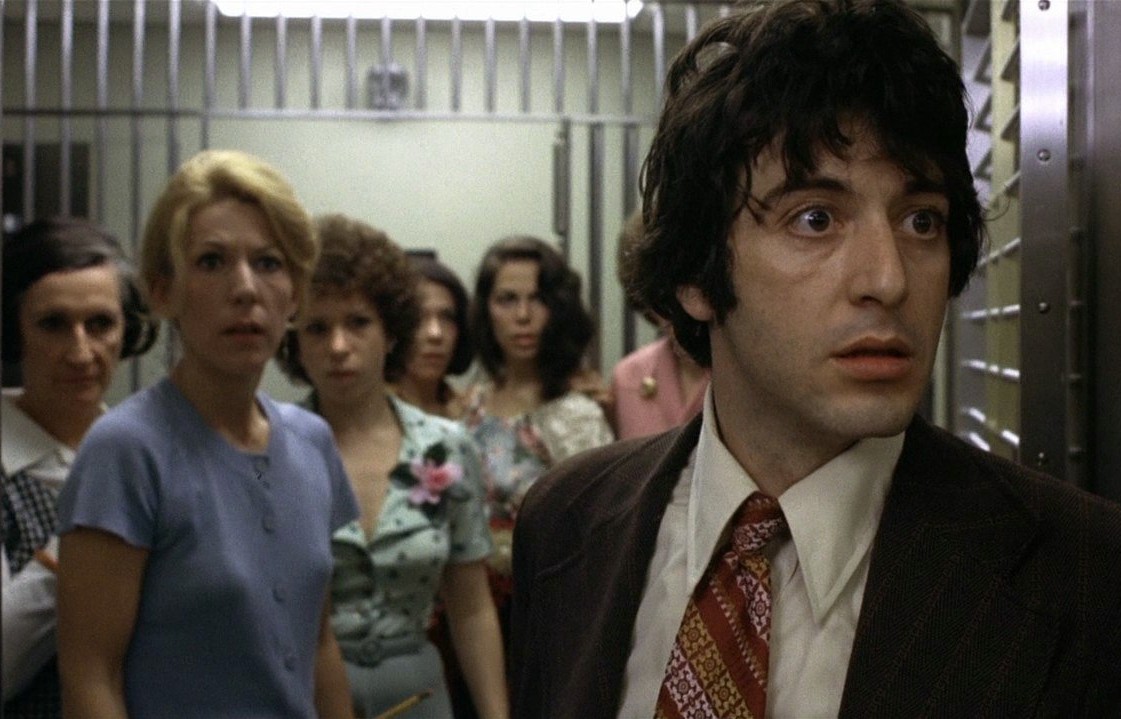
The 1970s is arguably the most recent period of cinematic achievement. Vision-led, technically adept direction was of course a significant contributing factor to this, but it would be amiss to ignore the impact that actors had in creating holistically great films.
Not only were the actors of this period gifted and talented, but their dedication to the craft itself was unparalleled. In an era of many character based films, the way that actors brought meaning to the scripts given, and followed and negotiated the director’s commands, was of great importance.
The 1970s have unfortunately since past. Many wonderful actors active in this period have either retired (Gene Hackman, Sean Connery, Gene Wilder, Sidney Poiter, Liv Ullmann Jack Nicholson?), or died (Marlon Brando, John Cazale, Martin Balsam). Those actors will not be referred to on this list.
The actors that are still working, however, have certainly not met the heights of their peak, either due to declining ability or in the roles actually offered to them. This is not to say that all performances have been disappointing, as some have indeed harkened back to the golden acting times of the 70s.
10. Harvey Keitel
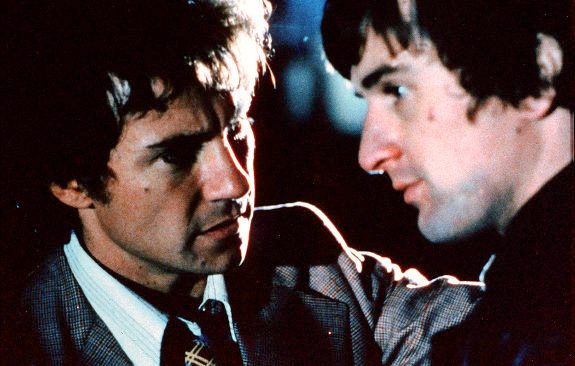
Always a steady performer, Harvey Keitel has made a career out of playing archetypal masculine characters. His breakout film, along with De Niro, was Mean Streets (1972), which remains his best performance in the eyes of many. Keitel’s measured approach to this, and all of his other roles have meant that he may not be as explosive as a Pacino, but he is certainly in a high category of his own.
Keitel’s great merit as an actor stems from his consistently solid performances in the roles he takes. Certainly, Mean Streets would not have launched Scorsese’s career in the way it did without Keitel’s valuable turn as Charlie. The way he juggled the paternal, brotherly side with the sheer aggressiveness of his male vices gave the film a complexity otherwise impossible.
Similarly, Keitel’s role as Sport in Taxi Driver (1976) is often overshadowed by the significant plaudits De Niro received for the film. Although De Niro’s Travis Bickle left an indelible mark on cinema, a tremendous amount of meaning would have been lost from the film, and Bickle’s character without Keitel’s valuable contribution.
The unredeemable vulgarity of Sport pimping out a 12 year old girl was met with complications by the more tender, caring aspect that is perfectly captured by Keitel. In the end of the film, the audience is left to ponder whether Travis’s actions were indeed warranted and righteous, much in part thanks to Keitel’s performance. Keitel’s recent output was mostly gone unnoticed in the cinema world.
While not appearing in disastrous films, he has not been presenting himself in great ones either. His turn in Youth (2015), alongside Michael Caine was an exception to this rule.
9. Meryl Streep
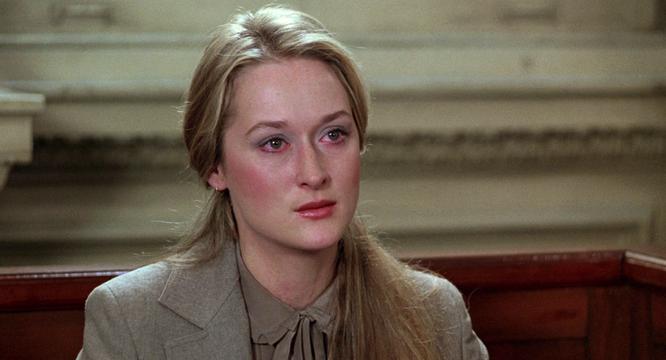
Meryl Streep’s unparalleled rise to acting stardom has been the envy of many actors and actresses, and indeed inspired many of the great actresses working today. Unbeknownst to some, Streep begun to make her name near the end of the 70s.
This differentiates her from many of the actors and actresses on this list, but does not mitigate her impact on this period of cinema. For, her performances in the Deer Hunter (1978), Manhattan (1979) and Kramer vs Kramer (1979) are still very much in the consciousness of many film goers.
Streep has always uncompromisingly played intelligent, strong yet affective women. Either that, or she has independently moulded her characters in such a way. Importantly, Streep aggrandises the status and concerns of the women she plays regardless of the time she features on screen. It must be noted, however, that the more time in which she features, the greater her output.
Although notable as Woody Allen’s ambitious ex-wife Jill in Manhattan, Streep’s performance as Joanna Kramer not only secured her a well-deserved Oscar, but it set new standards for actresses in the profession. The way in which Streep manages to realistically craft and convey the inner turmoil and outright love is masterful, significantly facilitating the critical success of Kramer vs Kramer. In many ways, this is a performance based film that optimally portrays the challenges and tribulations of family life.
Arguably, Streep is more renewed for her recent roles in commercially successful films such as the Devil Wears Prada (2006) and Mamma Mis (2008). This is extremely unfortunate because, although her performances are satisfactory for the material, they are nowhere near the authenticity and presence she exudes in her 70s performances.
8. Michael Caine
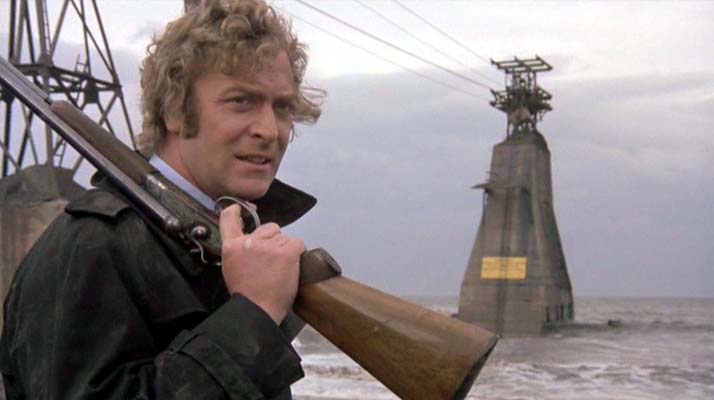
The always distinctive British actor has flourished at every stage of his career. Although he started out as a thespian, Caine’s innumerable talent demanded that he brace the silver screen.
The 1970s did not necessarily deliver any world-renowned filmic performances for Caine. However, for real film fans, this was a period of considerable success for Caine, and really showcased his acting skill.
Caine’s role in Joesph L. Mankiwicz’s Sleuth (1972) was counterbalanced with Lawrence Olivier’s Andrew Wyke to establish the tension, yet the playfulness the film needed to succeed. In a more expansive way, Caine’s main role as the titular Jack Carter in Get Carter (1971) showed audiences his ability to get tough and brutal when necessary. This was again showcased in the British thriller Harry Brown (2009).
Caine, even amongst British actors, managed to stand out from the pack with his distinctive Cockney accent and his looks. On the American scene, he was, and has been, the go to man for portraying British characters of all types.
In his older age, Caine has again hit a patch of mainstream recognition. Appearing as Alfred Pennyworth in Christopher Nolan’s monumental Dark Knight Trilogy, Caine has been adjudged to be the best Alfred depicted in cinema.
Moreover, his repeated collaborations in Christopher Nolan’s films, beginning with Batman Begins (2005) has meant that Caine’s career has maintained legitimacy and relevance, and perhaps even more fame than ever. His main role as an aging conductor in Youth (2015) was one of his more memorable and profound performances to date.
7. Faye Dunaway

Dunaway was one of many great actresses who was repeatedly able to secure main roles in the 70s, when the film industry was largely male dominated. This works to acknowledge the utmost contribution Dunaway made.
Following her explosive appearance as Bonnie Parker in Bonnie and Clyde (1967), Dunaway’s career did not take off in the ascendant way most expected. Although she made a number of decent films between 1968 and 1974, such as Little Big Man (1970), Roman Polanski’s seminal neo-noir film Chinatown (1974) realised the awesomeness Dunaway displayed in Bonnie and Clyde.
Dunaway perfectly modernised the archetypal role of the femme fatal by blending a touch of seriousness with unmitigated elegance. Importantly, her strained yet silently communicative performance in the final scene of the film is one of the most memorable scenes in the 1970s, thanks predominantly to Dunaway. Her career continued to reach even greater heights in Network (1976). As Diana Christensen, Dunaway showed audiences a ruthless side not seen since Bonnie and Clyde.
Dunaway’s output in the last decade or so has been greatly reduced, similar to most other actors of this period. What she has appeared in, though, has not done her justice for the talent she has. Many of these film roles have been in unknown, B-grade movies.
6. Martin Sheen
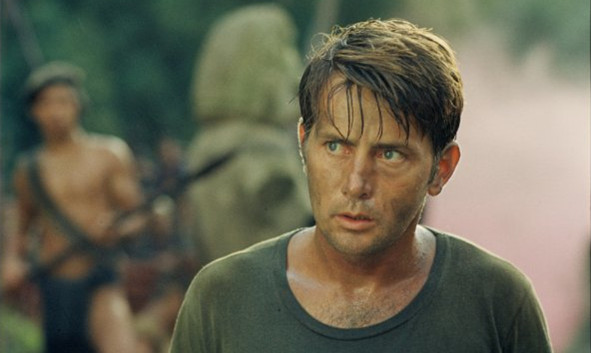
Real name Ramon Estevez, Martin Sheen is one of the most versatile performers in American history. Quite easily, someone like Sheen could have been caught in the swathes of average TV movies and TV shows. However, his quiet command his roles have bumped Sheen up into the upper echelons of the acting elite. With a great work ethic, appearing in more than 200 films and TV shows, it is important to focus on the films that showcase Sheen’s ability.
Sheen’s best creative output was in the 1970s. In Terrence Malick’s debut Southern masterpiece, Badlands (1973), Sheen played the killer Kit Carruthers with poise and delicacy. Rather than conform to an archetypal portrayal of an overtly crazed killer, Sheen’s unspoken, instability emerged through his contained facial expressions, and his confident posture.
The contrast between Kit’s scenes with the impressionable Holly and the scenes of uninhibited violence really communicated the senselessness of the film’s events. If Sheen was even a little bit off in at any point in his performance, the film could have failed spectacularly. Similarly, Sheen’s anchoring performance in Apocalypse Now (1979) was integral to the film’s success. He managed to appropriately channel both the numbness and horror of war, and gave the audience a point of identification and relation.
Sheen’s long stint as President Bartlet in the TV series the West Wing (1999-2007) has sustained his career into his later years. The film roles Sheen has been offered have been pointedly lacking, but his turn in the remake crime drama the Departed (2006) reminded film audiences of the acting power he undoubtedly possessed.